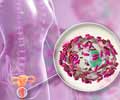Bacterial infection, particularly with Staphylococcus aureus, may have been overlooked as a causative factor in cases of sudden infant death syndrome (SIDS).
Bacterial infection, particularly with Staphylococcus aureus, may have been overlooked as a causative factor in cases of sudden infant death syndrome (SIDS), suggests research published ahead of print in the Archives of Disease in Childhood.
The Australian researcher analysed the post mortem reports for 130 babies who had died of sudden infant death syndrome (SIDS), 32 who had died suddenly as a result of infection (SUDI), and 33 who had died of non-infectious cause, such as a road traffic accident.He then analysed the bacterial isolates from normally sterile sites, such as heart blood, spleen, or cerebrospinal fluid, in the SIDS babies, and compared these with those of the other 65 babies.
Infection at a sterile site was rare in those infants who had died of non-infectious causes, but this was relatively common in both the SUDI and SIDS babies.
Unsurprisingly, almost one in five of the SUDI babies had a sterile site infection. But so too did one in 10 of the SIDS babies.
What is more, the infection was caused by Staphylococcus aureus, a particularly virulent bacteria, known to produce potentially lethal toxins.
Confirmation of a sterile site infection in a living person is a marker of systemic infection. But the finding in SIDS babies has previously been put down to contamination and often dismissed as a cause of death, says the author.
Previous researchers have suggested that immune responses to bacterial infection and or toxins trigger a chemical storm, which overwhelms the baby, resulting in sudden death.
Source-BMJ
SPH
 MEDINDIA
MEDINDIA



 Email
Email





